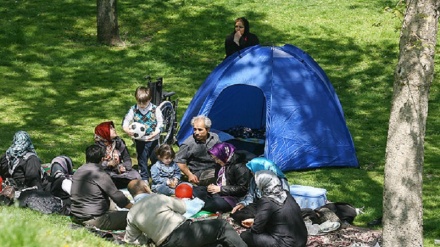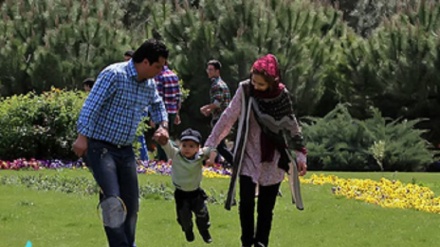Iranian family (15)
Trust is one of the most essential elements of marriage. However, some wrongly imagine that one cannot trust anyone, and that their future spouse is also no exception to this rule.
Maintenance of trust in someone, means that you believe in the unity and solidarity of that individual with you. In fact, no relationship lasts in the absence of trust, and the biggest success is attainment of complete mutual trust and understanding.
Marriage is one of the age-old traditions across the world, which maintains different customs and traditions in different countries. One of the best and most beautiful marriages around the world, is Iranian-style marriages; whose traditions and customs grants especial beauty to it. In the Iranian culture, the characteristics of men or women after marriage, turns into social characteristics. Upon marriage, the most important sense of social responsibility takes shape in the individual, leading to development of many capacities, which are embedded in the married individual, enabling the person to accept further responsibilities and duties within the community. The most important fact about Iranian wedding ceremonies is their concurrent simplicity and glory, which has been transferred from one generation to the other generation.
In the meantime, wedding ceremonies maintain a number of differences in different cities of Iran. After the wedding ceremony, guests accompany the bride and the groom to the doorstep of their house, while the father of the bride wishes all the best for the married couple.
In the majority of Iranian families, the family members and relatives gather around for the wedding ceremony of the bride and the groom. in the Iranian festivities, appropriately hosting the guests has always been of paramount importance. Nowadays, guests are at times treated to a number of dishes, fruits, and desserts.
One of the wedding traditions among Iranian ethnicities is to hold festivities for three to seven days. In some of the cities of Iran, and some of the villages of the Province of Chahar Mahal Bakhtiari, wedding ceremonies last seven days. The close relatives of the groom and all the related neighbors, gather in the groom's house, seven days prior to the wedding ceremony, assisting with the arrangements which have to be made before the wedding ceremony.
In rural weddings, the fellow villagers cook dishes for the wedding ceremony. The female relatives of the bride and groom also gather around as of seven days before the wedding ceremony, peeling and frying eggplants, and cleaning the vegetables, red meat, and chicken which are to be cooked for the wedding ceremony so that everything would be prepared for the upcoming festivity.
In the city of Shiraz, the wedding ceremonies are held based on a number of beautiful customs and traditions. The house of the bride and groom is decorated for the wedding ceremony and ceramic flower pots are placed around the pond. The carpets are spread across the courtyard, and upon the attendance of all the invited guests, the bride is brought to the wedding ceremony. After the wedding ceremony, usually an elder individual who is in the company of the groom, asks for the bride's parents' permission to take the bride to groom's house. The bride kisses her parents' hands, and bids farewell to them, while a volume of Holy Quran is passed over her head. Upon entering the groom's house, a tray which holds a volume of Holy Quran and a bowl filled with water within which a flower is floating is brought before the bride. She kisses the volume of Holy Quran, and thereafter the water in the bowl is poured on the floor, so that the bride would walk over the spilled water and begin her married life, based on mutual love, and abundance of hope and happiness.
The lives of working couples are different to the lives of traditional couples; within which the man is considered to be the only breadwinner of the house. The lives of working couples maintain a number of advantages, and disadvantages, both. The working married couples form the largest group of non-traditional families. In these families, both of the spouses have jobs, managing their family with their shared incomes. This model of families is different to the model of traditional families, within which the man is the family's breadwinner, and the woman is a housewife, implementing the chores round the house. At times, the working couples compete with each other, with each of the spouses considering their role to be more important than the role of the other spouse.
Note that in the Islamic culture, women do not shoulder any responsibility in fulfilling the economic needs of the family. However, if a married woman, due to the conditions of her married life, or her own interest, enters this scene, she should refrain from harming her husband's self-esteem.
MR/ME


